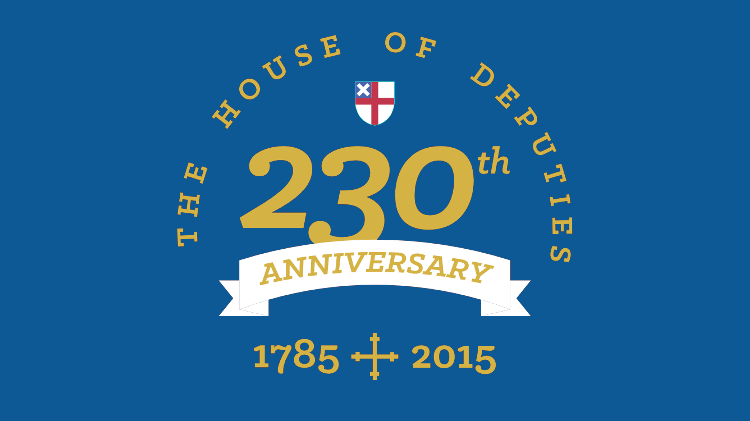On the final legislative day of the 78th General Convention, the House of Bishops plowed through multiple calendars and dozens of resolutions, including two that drew considerable debate but ultimately were approved.
A matter that had caused significant debate on Thursday – whether or not the president of the House of Deputies should receive a stipend – returned to the bishops after the two houses sought a compromise on Resolution D013. The bulk of the resolution, which was the third of three presented to make changes in church structure, dealt with a new process for creating the church’s three-year budget. But the stipend proved a sticking point for bishops, many of whom were reluctant to provide compensation for what has historically been a volunteer position.
To find a compromise, on Friday morning, each house appointed three members to a Committee of Conference. By late afternoon, the six members–Bishops Sean Rowe, Rob O’Neill and John Howard; and Deputies Sally Johnson and Tom O’Brien and Vice President Byron Rushing–had crafted a resolution that calls for the presiding bishop and president of the House of Deputies to appoint a task force to consider “issues of leadership and compensation” and report to the 79th General Convention in 2018.
The conference committee’s resolution also acknowledges the responsibilities of the president of the House of Deputies as vice-chair of Executive Council and vice-chair of the Domestic and Foreign Missionary Society, the corporation by which the church conducts business, and “recognizes that at the present time, the House of Deputies is of the view that only persons who are retired or who have substantial economic resources are financially able to serve as President of the House of Deputies.”
The compromise resolution also pushed back to 2019 the date on which assessments to dioceses for the churchwide budget would be considered mandatory. Dioceses unable to pay their full asking, which is slated to drop from 19% to 15% by 2018, will be able to request a waiver from Executive Council. Without such a waiver by 2019, dioceses not in compliance will not be eligible for grants or loans made through the Domestic and Foreign Missionary Society.
The House of Deputies took up the resolution mid-afternoon with a number of bishops, who were on recess, in the gallery. After the deputies approved the measure 684-84, the resolution was taken up by the bishops with Johnson, O’Brien, and Rushing present.
In presenting the conference committee’s report, Rowe said that by approving the task force, “the House of Bishops would reach back across to the House of Deputies to acknowledge its feelings on D013.”
Bishop Steven Miller of Milwaukee said that he would support the compromise D013, but that he remained concerned that the duties of the president of the House of Deputies were not sufficiently defined.”
Bishop Julio Holquin of the Dominican Republic, through an interpreter, said he worried that his and other dioceses in Province IX would be unable to comply with the mandate.
Bishop Rowe responded that his concern was exactly the kind of circumstance envisioned by the provision for waivers.
The measure was approved on voice vote with only one audible dissent.
Earlier in the afternoon, the House of Bishops had adopted Resolution D004, which creates a task force to study the election and appointment of bishops.
The measure calls for a 12-member Task Force on the Episcopacy to be appointed by the presiding bishop and the president of the House of Deputies. The group will include three bishops, three clergy and six lay people and will be tasked with studying the election, appointment, roles and responsibilities of bishops and examining what “gifts, life experience and expertise” the office requires. Noting that the House of Bishops is becoming less diverse, the resolution directs the task force to “seek ways to encourage diversity in the Episcopate.”
At General Convention in 2018, the group will propose a standard process for all aspects of a bishop search process, including the role of the Office of Pastoral Development, and how adjoining dioceses might help a diocese in its discernment process.
This latter provision caused concern for several bishops. Bishop William Love of Albany said he worried that the church might try to instruct dioceses who or how they should elect a bishop.
Bishop Dan Martins of Springfield said that he was apprehensive that “the church at a churchwide level will get to meddling in the life of dioceses.” He said otherwise he could support the resolution.
Bishop Greg Brewer of Central Florida said he supports creation of the task force because dioceses currently have questions about the process of selecting a bishop. “Some use recommendations from the DFMS, and some don’t,” he said. People in his diocese are apprehensive about being on a possible search committee and would welcome help, he said.
Melodie Woerman is director of communications in the Diocese of Kansas.
